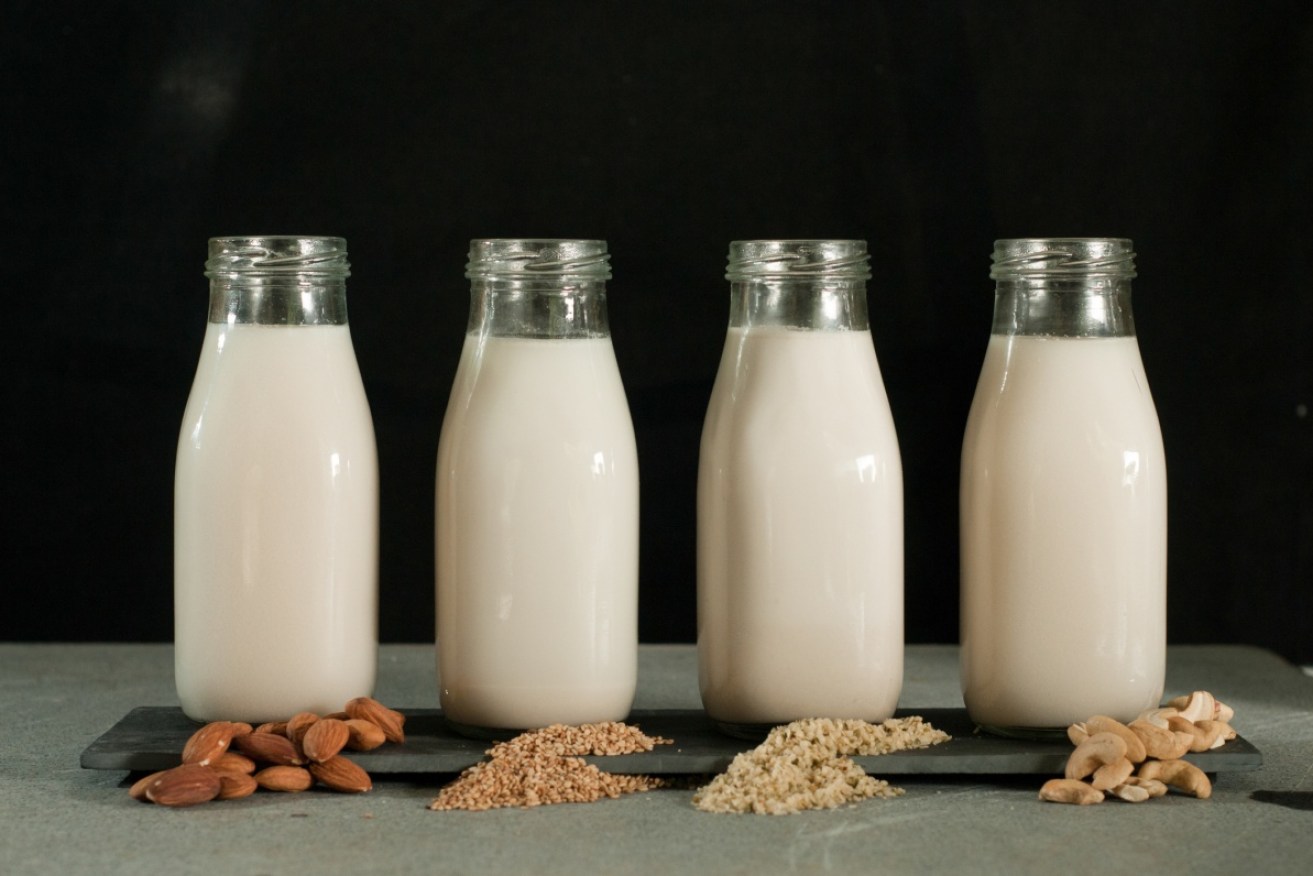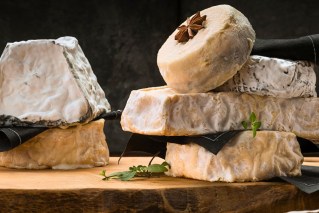The complete guide to plant-based milks


Plant-based milks are easy and quick to make at home, says The Blender Girl, Tess Masters. Photo: Getty
In the old days you popped down to the milk bar and bought a bottle of milk.
Then we had the influx of milk variants which allowed us to buy low-fat, no-fat, full cream, high calcium, high protein, soy, light skim, omega-3, high calcium with Vitamin D and folate or extra dollop — as depicted in the Paul’s brand Smarter white milk commercial.
Certainly, Australians love milk, and our consumption is considered to be “very high compared to other countries”, according to Dairy Australia, with a per-capita consumption estimated at 105 litres.
There are, however, new players pouring into the market.
“In the last 12 months in Australia, just over 29 per cent of households have bought plant-milk products, up by 2.7 per cent on the previous year,” Chris Gillard, general manager of Vitasoy, says.
He says that despite significant growth in the almond and coconut segments of the market, soy milk remains the most popular plant milk at 49 per cent of all volume. Almond milk, by contrast, holds 31 per cent of that market segment in volume terms.
There is no single reason driving the uptake of plant milks. However, it does fit with a number of current food trends, including “‘Free From’, ‘Naturally Functional’ and ‘Plant-Based Foods’,” Mr Gillard says.
These trends are reflected at Passionfoods, Melbourne’s oldest established organic eco-store, which has been owned by Steven Klotnick for the past 33 years.
“We stock products for vegans, vegetarians, as well as gluten, wheat and lactose intolerant people – so almond, coconut, rice, oat, macadamia and soy milks are all extremely popular,” Mr Klotnick says.
Unhomogenised cows’ milk, however, remains his most popular milk.
Our love of smoothies and new-age turmeric and matcha lattes has contributed to the popularity of these different milks – each of which has its own unique taste, texture, nutritional profile and price tag.
As with wine, discovering milks can be a pleasant journey. When it comes to coffee, however, dairy milk remains the best, according to Caleb Cha, PURA Milk ambassador and latte-art champion.
“I love to use milk which contains balanced organic materials such as protein and fat rates,” he explained.
“My favourite number on the nutritional profile is 3.5g/100ml for protein and total fat – this means I get the best quality and consistency in terms of flavour and the final feel in the mouth.”
For those who are lactose-intolerant or simply dislike dairy, almond milk is a great alternative says Lisa Yates, dietitian from Nuts for Life (Australia’s tree-nut nutrition education body), who attended The Australian Nut Conference in Melbourne this week.
“Almonds are rich in vitamin E, so almond milk does contain vitamin E, and if the almond milk is unsweetened, it has both a lower energy and sugar content than ‘lite’ dairy milk.”
Indeed Lola Berry, nutritionist, author and yoga teacher, loves almond milk and all the nut-milk alternatives, but her “absolute favourite” is freshly made macadamia milk.
Tess Masters, author of The Blender Girl and The Perfect Blend, concurs.
“Homemade plant-based milks are really easy to make in less than 10 minutes, and unlike commercial products (which often contain additives, preservatives, thickeners, emulsifiers, and stabilisers), you can completely control the integrity of the finished product: the quality of the ingredients, the flavour and sweetness, and the texture. Homemade milks also taste so much better.”
Recipes for most plant-based milks can be found here:
Milk Profiles
|








